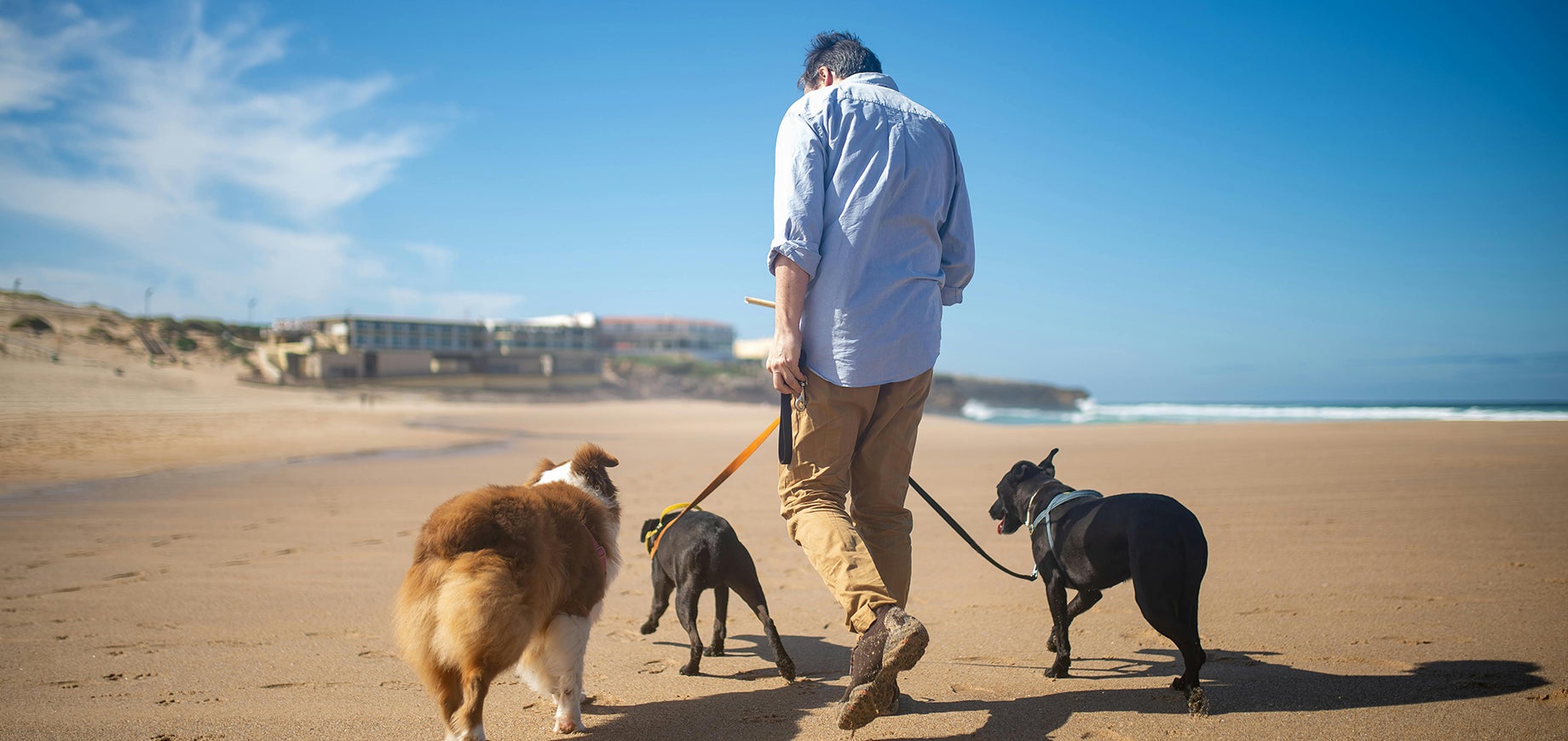Find products that match your dog’s needs

Photo by Kampus Production on Pexels
When it comes to adopting a dog, you aren’t just choosing a pet, you’re choosing a new best friend. That’s why selecting the right dog breed for you is so important. So, if you’re wondering how to choose a dog to adopt, here are some helpful tips to consider.
Adopting a dog from a shelter or rescue organisation is one of the most rewarding experiences a dog owner can have. It reduces the number of homeless pets and offers a dog in need a whole new lease of life, providing them with a safe and loving home to thrive in.
Choosing to adopt from shelters also holds benefits for new dog owners. Australian rescue organisations often have dogs that are already house-trained and socially adjusted to make the transition smoother for you and your pup. On top of this, adoption fees typically include vaccinations, spaying or neutering, and microchipping, bringing great peace of mind.
Choosing the right breed involves more than just picking the cutest pooch. From allergy-friendly dogs to the cost of different breeds, there are several essential factors to consider before selecting a furry friend to welcome into your home.
Your lifestyle plays a critical role in determining which dog breed is the best fit for you based on their needs and how you can accommodate them. Consider how much time you can dedicate to your pup, how active you are, and what your daily routine looks like when choosing a dog to adopt.
Just like humans, different dogs require different living conditions to flourish and be their happiest, healthiest selves. Thus, the size of your living space can significantly impact the best dog breed to adopt. Larger breeds often require more space to move around, while smaller breeds can adapt well to apartment living.
Additionally, when living in a hot country like Australia, it’s important to consider the climate of your location, as some dog breeds are better suited to certain weather conditions than others.
If you or a family member suffers from allergies, it's essential to look for dog breeds that shed minimally and are allergy-friendly. Poodles and Shih Tzus are a great option to consider for people seeking allergy-friendly dog breeds. The Bichon Frises also does not shed frequently.
As the RSPCA Smart Dog Buyer’s Guide states, it’s important to consider the dynamics of your household and how a new pup will fit into it. This includes thinking about the temperament of any pets you already have. If they are unlikely to adjust easily to a new addition, getting a new pet is probably not a good idea at least until they have some training.
For example, if you have other pets or young children, you'll want to choose a breed known for being good with kids and compatible with other animals. Breeds like Labrador Retrievers and Beagles are generally known for their friendly and gentle nature so would be an excellent option to consider for a young or furry family.
Different breeds have varying exercise requirements and this needs to be taken into account when choosing to adopt a dog. High-energy breeds like Border Collies and German Shepherds will require more physical activity and mental stimulation, while lower-energy breeds like Mastiffs and Basset Hounds may be content with shorter walks and play sessions.
Exercise is the cornerstone of any pup’s happiness so make sure you can meet the walk and playtime needs of your chosen dog breed before adopting.
The age of the dog you adopt is another factor that can influence your choice.
Puppies require more training and attention and some puppy proofing might also be needed to keep them safe at home. Older dogs, on the other hand, may already be house-trained and easier to settle, yet might have health and injury prevention considerations.
Consider your ability to handle the specific needs of these different life stages so that you can provide the best care to - and in return receive the greatest joy from - a new addition.
Adopting a dog is a financial commitment that goes beyond the initial adoption fee. Understanding the ongoing costs of caring for a pet is a crucial part of responsible pet ownership.
Veterinary care is a significant aspect of owning a dog and can crop up when you least expect it. That’s why, when choosing to adopt a dog, it's important to factor in regular check-ups, vaccinations, and potential emergencies into your budget.
Some dog breeds are prone to certain genetic and health conditions, so it’s important to research any health issues associated with a specific dog breed before adopting. For example, bulldogs are prone to respiratory problems, so it is important to do your homework ahead of time and get to know the breed you want to adopt. This ensures you know in advance what kind of care they may one day need, and also prevents any surprise healthcare costs further down the line.
Providing your dog with a balanced and nutritious diet is essential for their well-being and long-term health. The cost of food can vary based on the size and dietary needs of the breed. Keep in mind that larger breeds will generally require more food, which can increase your monthly expenses. Dogs of different ages and life stages also need different kinds of nutrition so bear that in mind when considering costs.
Adopting a dog is one of the most fulfilling and joyful adventures a pet parent can embark on. However, it does involve careful consideration of both your personal circumstances and the needs of your chosen dog breed to ensure a happy, healthy, and harmonious life together.
Choosing to adopt a dog is a long-term commitment, but making an informed choice will ensure it is one of the best decisions you will ever make. For more advice on choosing and caring for a pooch, visit the PEDIGREE ® brand health hub.
©2024 Mars or Affiliates.

Find PEDIGREE® dog food online at one of our retailers today!
Buy online
Click to buy from any of the retailers below


